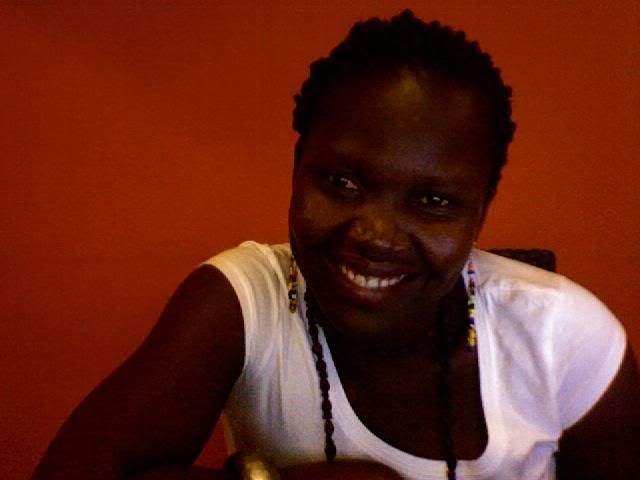
Hello and welcome to the second entry in our Caine Prize Blogathon! This week we're reading "Butterfly Dreams" by Beatrice Lamwaka, which you can read for free here: http://www.caineprize.com/pdf/2011_Lamwaka.pdf
After last week's foray into the Caine Prize nominees, I was sincerely hoping that the quality would only improve with each story. Sadly, I am disappointed. "Butterfly Dreams" fails both in the mechanics of its writing and in its storytelling, leaving no cliché unturned. Once again, it's a story about a child, and this time I'm not inclined to be as forgiving. Apologies in advance if I'm a bit harsh, but this story really rubbed me the wrong way (and I'm possibly making up for being too kind last week).
AND SPEAKING OF CLICHÉ
Boy, you name an African development storytelling cliché, this story's got it, from child soldier to displacement camps to walking to school though bombs to cartoonishly evil rebel soldiers. For a ten page story, it sure packs in a bunch of tropes.
This reminds me of what my fellow first generation Indian-Americans and I used to refer to as the "mangoes and jasmine" problem of Indian literature as published in the U.S. We would put down any book right away if we saw the phrases "the air was filled with the scent of jasmine" or "ripe, juicy mangoes" in any novel or short story.
In terms of African fiction, I'm starting to feel the same way about "abducted children" and "the rebels laughed." Perhaps interesting and novel ways of telling this story do exist, but Lamwaka has not found it.
ON THE MECHANICS OF WRITING
If a writer chooses an unusual structure to tell a story, there must be a clear narrative purpose served, otherwise it comes off as a)showboating or b)lazy. Sadly, this story fits into the latter. The writer clearly had the seeds of an idea, a letter to a child soldier from the living family, and then ran with it without ever considering the purpose of communicating in this fashion to said child soldier. It doesn't tell a story of a family coping, in fact I'm not sure what it's about, it takes so many twists and turns. The constant switching from past to present tense certainly doesn't help. By the conclusion, are we meant to assume that the story is about Lamunu finally, improbably being saved? Or that a broken family has placed all their hopes in the prodigal child? I can keep guessing, but I'll spare you.
This writing is extremely clunky. The prose and syntax are halting and dry, and the whole tone feels incredibly artificial. For example, when Lamwaka writes: "We also didn't want your tipu to roam northern Uganda," are we expected to believe that locals would use the clinically geographical term of "northern Uganda"? Apart from being syntactically implausible, the narrator is a displaced person. Being displaced automatically means a sort of surrender of not only place but the very concept of place, so again, that clinical description just does not ring true.
Also, you just can't use local language signifiers like tipu and malakwang and also use words like "ululated," at least not if you're narrating from the perspective of any real human being. Ululating leapt off the page and bashed me over the head with an umbrella until I could never forget it (and I still can't. Dreadful word choice).
I cannot for the life of me understand the value in this story or in acknowledging it as 'best African writing.' The same story is told a million times elsewhere, and in infinitely better ways. I hope my blog-a-thon colleagues can offer some sort of defense or counterpoint, but I am really disappointed with this one.


I had a very similar reaction to this story-I think the voice of the narrator is badly developed-as you said it makes no sense for the child narrator to refer to "northern Uganda"-the child would call it by a particular name-also the use of the word "ululated" is just silly-there is little in this story that a viewer of BBC international or CNN would not already know-I think it is worth the time it took to read it and I am not well read in short stories by African authors to judge the relative quality of this work
ReplyDeleteI ejoyed your post a lot-once we read all five we should handicap them for winning!
My post on "Butterfly Dreams"
Please take a look at my post if you have time-I would value your comment
Your post is making me laugh out loud by 6 am in the morning in a hospital call room . We will have more 'ululating' until African take responsibility for their writing.
ReplyDelete